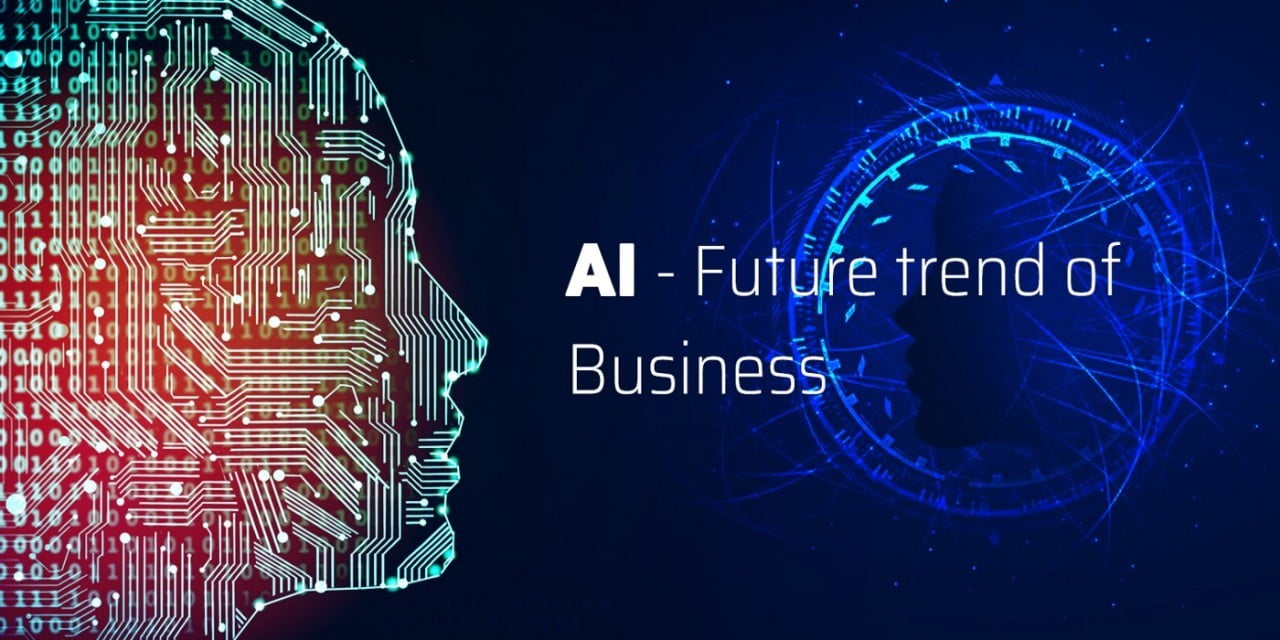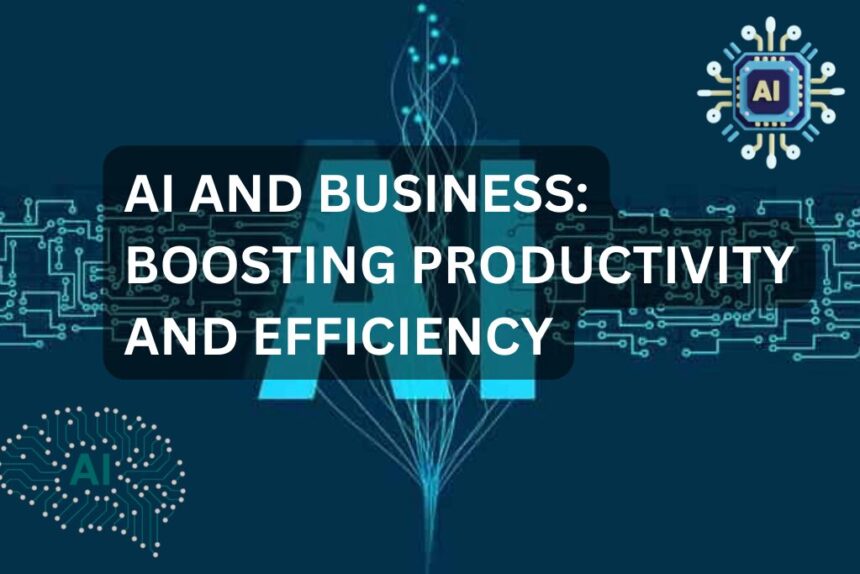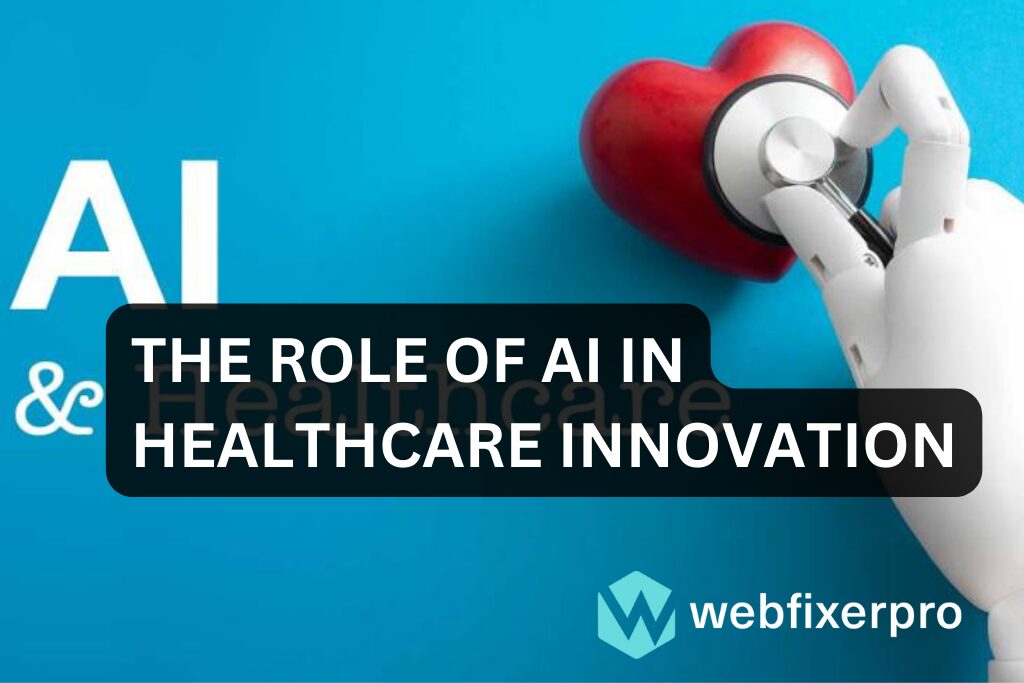In today’s fast-paced business landscape, the integration of Artificial Intelligence (AI) has become a game-changer, revolutionizing the way companies operate and compete. This article explores the profound impact of AI on business productivity and efficiency, shedding light on its multifaceted role in different facets of organizational processes in AI Business Productivity Boost.
Introduction
Definition of AI in Business
AI refers to the simulation of human intelligence in machines programmed to think, learn, and problem-solve. In the business realm, AI business productivity encompasses a range of technologies designed to enhance operations, decision-making, and overall efficiency.
Importance of Productivity and Efficiency in AI Business Productivity
Productivity and efficiency are the lifeblood of any successful business. They dictate the ability to meet customer demands, stay competitive, and achieve sustainable growth. AI emerges as a key enabler in achieving and surpassing these crucial benchmarks.
Overview of AI’s Role in Boosting Productivity and Efficiency
AI serves as a catalyst for transformative changes in business operations. From automating mundane tasks to facilitating complex decision-making processes, its impact is profound and far-reaching.
The Impact of Artificial Intelligence AI on Business Processes
Automation of Repetitive Tasks
One of the primary contributions of AI to business is the automation of repetitive tasks. Mundane and time-consuming activities can be handled efficiently by AI algorithms, freeing up human resources for more strategic endeavors.
Streamlining Decision-Making Processes
AI aids in decision-making by analyzing vast datasets to provide valuable insights. This accelerates decision-making processes, reduces errors, and ensures more informed choices at every level of the organization and AI Business Productivity Boost.
Enhancing Data Analysis Capabilities
Businesses are drowning in data, and AI acts as a lifeline by extracting meaningful patterns and trends. Through advanced analytics, organizations can make data-driven decisions, optimizing their operations for maximum efficiency.
Artificial Intelligence in Customer Service
Chatbots and Virtual Assistants
AI-powered chatbots and virtual assistants revolutionize customer service. They provide instant responses, handle routine queries, and contribute to a seamless customer experience.
Personalized Customer Interactions
AI analyzes customer behavior and preferences, enabling businesses to personalize interactions. This not only enhances customer satisfaction but also boosts brand loyalty.
24/7 Availability
Unlike human agents, AI operates around the clock. This ensures 24/7 availability, meeting customer needs and expectations at any hour.
Artificial Intelligence-Driven Marketing Strategies
Data-Driven Insights for Targeted Campaigns
AI processes vast amounts of data to identify target audiences and tailor marketing campaigns. This precision significantly improves the effectiveness of marketing strategies.
Predictive Analytics in Marketing
Predictive analytics powered by AI anticipates market trends and customer behaviors, allowing businesses to stay ahead of the competition and adapt their marketing efforts accordingly.
Improving ROI through AI Tools
AI tools measure and optimize return on investment (ROI) by tracking campaign performance. This enables businesses to allocate resources more efficiently for maximum returns.
Artificial Intelligence and Employee Productivity
AI-Assisted Collaboration Tools
AI enhances collaboration among employees through intelligent tools that facilitate communication, project management, and information sharing.
Training and Development with Artificial Intelligence
Employee training becomes more effective with AI-driven solutions, providing personalized learning paths and continuous development opportunities.
Reducing Workload through Automation
By automating routine tasks, AI reduces the workload on employees, allowing them to focus on higher-value activities that require creativity and critical thinking.
Challenges and Considerations
Ethical Concerns in AI Implementation
As businesses embrace AI, ethical considerations arise. Transparency, fairness, and accountability must be prioritized to prevent unintended consequences.
Data Privacy and Security
The use of AI involves handling vast amounts of sensitive data. Businesses must implement robust measures to safeguard privacy and security.
Balancing AI with Human Touch in Business Operations
While AI brings efficiency, maintaining a human touch is crucial. Striking the right balance ensures that technology enhances, not replaces, human interactions and AI Business Productivity Boost.
Future Trends in AI and Business

Continuous Advancements in AI Technology
The field of AI is dynamic, with continuous advancements. Staying abreast of the latest technologies is essential for businesses to remain competitive.
Integration of AI in Emerging Industries
As AI matures, its integration into emerging industries like healthcare, finance, and logistics is expected to bring about transformative changes.
Evolving Business Strategies with AI
Businesses need to adapt their strategies to harness the full potential of AI. Those who proactively embrace change will thrive in the evolving landscape.
Case Studies
Successful Implementation Stories
Examining success stories of businesses implementing AI provides valuable insights and lessons for others considering adoption.
Lessons Learned from AI Adoption in Various Businesses
Understanding challenges faced by other businesses can help in developing effective strategies for successful AI integration.
Real-world examples of Improved Productivity and Efficiency
Exploring real-world examples showcases the tangible benefits of AI, inspiring businesses to explore similar opportunities.
Tips for Businesses Considering AI Adoption
Assessing Business Needs
Conduct a thorough assessment of business needs to identify areas where AI can have the most significant impact.
Choosing the Right AI Solutions
Select AI solutions that align with business goals and processes, ensuring a seamless integration that maximizes benefits.
Investing in Employee Training and Adaptation
Prepare employees for AI adoption by investing in training programs that equip them with the skills needed to work alongside AI technologies.
The Role of AI in Small Businesses
Affordable AI Solutions for Small Enterprises
AI is not exclusive to large corporations. Affordable solutions cater to the needs of small businesses, promoting inclusivity and competitiveness.
Overcoming Challenges in AI Adoption for Small Businesses
While challenges exist, small businesses can overcome them with careful planning, strategic implementation, and leveraging available resources.
Potential Benefits and Pitfalls
Understanding both the potential benefits and pitfalls of AI adoption is crucial for small businesses to make informed decisions that align with their goals.
Conclusion
Recap of the Significance of AI in Boosting Productivity and Efficiency
AI stands as a powerful ally in the quest for increased productivity and efficiency, reshaping the business landscape.
Encouraging Businesses to Embrace AI Responsibly
With great power comes great responsibility. Businesses are encouraged to embrace AI responsibly, considering ethical implications and societal impact.
A Call to Action for Businesses to Explore AI Opportunities
The time is now for businesses to explore and capitalize on the vast opportunities AI presents. Embracing innovation positions companies for sustained success in the digital age.
FAQs
Q: How can AI benefit small businesses?
AI offers affordable solutions that enhance efficiency, decision-making, and competitiveness for small enterprises.
Q: What ethical considerations should businesses keep in mind when implementing Artificial Intelligence?
Transparency, fairness, and accountability are paramount to address ethical concerns in AI implementation.
Q: How does Artificial Intelligence contribute to employee development?
AI-driven training programs provide personalized learning paths, contributing to continuous employee development.
Q: Are there any risks associated with Artificial Intelligence adoption in business?
Data privacy and security risks, along with the potential displacement of certain jobs, are considerations in AI adoption.
Q: Can AI be integrated into industries beyond the traditional business sectors?
Yes, AI is increasingly being integrated into emerging industries such as healthcare, finance, and logistics for transformative effects.



